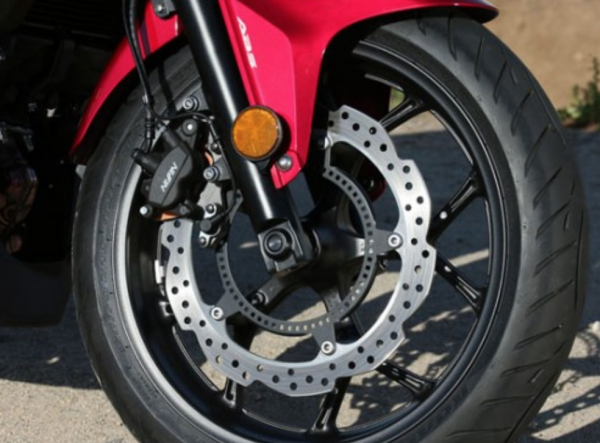
When was ABS first introduced?
ABS has been around for longer than you might think. BMW first introduced an optional Bosch ABS system on the 1988 BMW K100. A few years later, this mechanical system was superseded by Honda’s electro hydraulic system for their 1992 ST100’s.
It took 28 years for this system to become mandatory in the EU for bikes that are 125cc or above. If ABS is so effective at saving lives, why did it take so long to become compulsory? Granted, when it was put to the vote it won by a landslide, but that’s not to say that every country has deemed it a vital tool to reduce motorcycle accidents.
Until recently, New Zealand was one of those countries. The New Zealand Transport Agency (NZTA) has just announced that from April 2020 ABS will be compulsory on all new motorcycles that are 125cc or above, and ABS or combined braking will be required for any cc below 125cc. This result comes after years of campaigning from advocates.
How effective is ABS at reducing motorcycle accidents?
Focusing on the UK for a moment, we need to look at how most motorcycle crashes occur. It seems that bikers Achilles heal is corners (mostly on A-roads), and failure to negotiate them. According to Sorrymate.com, 9% of motorcycle accidents in 2016 were caused by a corner. These crashes are often caused by approaching the bend too fast. In addition, 83% of accidents took place in excellent weather. So, would ABS have helped in the majority of these cases?
If you go into a corner too hot there’s only a couple of things you can do. You can brake for as hard and long as possible, release, then chuck it in and hope for the best; or, brake hard and long, don’t release, and run wide onto the other side of the road (as the bike will naturally stand up whilst on the anchors). Both options carry different risks and in reality, ABS can only do so much to reduce the likelihood of a crash - going to fast being the causal factor. ABS’s sole purpose was to stop lock-ups and low-side accidents, but more recently, Bosch has developed a system which works in tandem with the traction control called motorcycle stability control (MSC), as well as developing a more accurate cornering ABS system. Whilst this newer system is more likely to help in the aforementioned scenario, it’s not necessarily a given that a crash will be prevented.
Poor road conditions also are a common cause of accidents. Hitting diesel, oil, mud or ice can result in loss of control. Once more, ABS isn’t going to help in such a situation.
A 2015 study by Monash University found that ABS technology resulted in a 33% reduction in injuries from motorcycles crashes and a 39% reduction in serious injuries. And in the last ten years, the UK has seen a 35% reduction in motorcycle accidents - which semi-correlates to the time of which ABS began to become a mainstream optional extra. For the latter statistic, it’s hard to say whether this reduction is down the introduction ABS alone, although it has likely played a part.
Summary
In reality, stats don't give us the answer. What we know for certain is that ABS is effective at doing what it’s designed to do. It wouldn’t be implemented if it wasn’t. Whether or not ABS will work every time in preventing a crash depends entirely on the scenario. It seems like a no brainer that as vulnerable road users, it’s in our best interests to have every tool at our disposal in case the sh*t hits the fan. Every little helps right?
Let us know your thoughts about ABS in the comments below.

